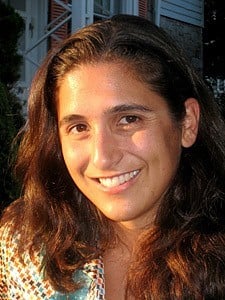Parshat Vayigash details one of the Torah’s most dramatic episodes: After Judah delivers an anguished monologue, the vizier Joseph reveals his identity as the boy whom, 22 years earlier, his brothers had sold into slavery. Judah’s words, which have prompted this revelation, are a response to the threat of Benjamin’s imprisonment, the final turn in the screw of manipulations to which Joseph has submitted his brothers.
Judah’s monologue recounts how the vizier’s accusations and demands have tormented his complicated family. With unflinching pathos he sketches the grief that has shaped his father’s inequitable love for Benjamin—the beloved remnant of a favored family, and by implication, he concedes his own inability to comfort and satisfy his father. Judah begs the vizier to enslave him in place of “the boy,” whose “soul is bound up” with that of his father’s. Above all, he tells of his personal anguish, imploring Joseph to understand who he is and why, therefore, he cannot allow Benjamin to remain in Egypt, to bring such suffering to his father.[1]
Commentator Avivah Zornberg recounts what Judah’s words have set in motion: “A long silence, the silence of survival, collapses, and Joseph gives his sole testimony to the past: ‘I am Joseph your brother whom you sold to Egypt.'”[2] Judah’s monologue breaks the powerful Egyptian who can now—finally—speak as himself, as Joseph.
The power of Judah’s words, explains the Hassidic rebbe the Sefat Emet, is contained in their deep penetration, reflected in the parshah’s opening words—Vayigash elav Yehudah— “and Judah came close to him.” The Sefat Emet relates:
“To him”—to Joseph. But also, “to his own Self—to himself.” And also, “to Him—to God.” For indeed, Judah said nothing new in his speech, had no legal plea to make to Joseph. Nevertheless, since he accessed the reality of his narrative, salvation came to him. . . .[3]
God was drawn in by Judah’s testimony. The divine presence, the Sefat Emet implies, resides in these acts of raw self-narration, with their power to bring about salvation. What is more, it was Judah’s ability to authentically tell his own story that was the transformative catalyst in the confrontation between Joseph and his brothers. Judah’s narrative was perfectly pitched to lend voice to the mute Joseph, transforming an impasse of enmity into reunion and healing.
The transformative power of personal testimony endures as an essential means of mending relationships, families, self—even nations. Indeed, our own community’s efforts to respond to the Holocaust have underscored how personal testimony is at once psychologically necessary for the survival of the broken person and morally necessary for the rebuilding of the broken world. Both telling and listening—shattering the survivor’s silence and piercing the deafness of a guilty world—have been essential to this testimonial process.
Indeed, some survivors are relentlessly driven to tell of themselves. In explaining this need, the narrator of What is the What, a novel about the experiences of one of the “lost boys” who walked across Sudan to escape its horrific civil war, recounts:
Whatever I do, however I find a way to live, I will tell these stories…I speak to you because I cannot help it. It gives me strength, almost unbelievable strength, to know that you are there. . . . I will tell stories to people who will listen and to people who don’t want to listen, to people who seek me out and to those who run.[4]
There are certainly those who, unwilling to listen, do run. Survivors are thus not always met with either a receptive audience or a safe place to speak. But as those who have insisted on the imperative to narrate, listen to and remember the testimonies of our own community of survivors, we must also insist on hearing the voices of survivors of contemporary global violence.
There is increasing recognition of the importance of providing a forum for such speech and a means of preserving testimonies from survivors of contemporary violence and genocide. Fourteen years after Rwanda’s genocide, the organization called Voices of Rwanda has begun recording and preserving survivor testimony from the Rwandan genocide. And similarly, the organization Three Generations is seeking to preserve testimony from survivors of violence in Cambodia and Darfur, as well as Rwanda. These organizations publish individuals’ testimonies—in writing or video—on their websites.[5]
Parshat Vayigash‘s account of how Judah’s personal testimony initiated the brothers’ reconciliation provides us with the opportunity to reflect on the transformative work that such testimony can effect in an anguished life. As we struggle to fashion means of mending a recurrently broken world, we should ensure that the two sides of this powerful process—telling and listening— are an integral part of our efforts.
[1] Genesis 44:18-34
[2] Avivah Zornberg, “The Exile of the Word,” pps.11-12 available at http://www.matan.org.il/content.asp?id=203, quoting Genesis 45:2.
[3] Sefat Emet, VaYigash, 249; as quoted in Zornberg’s essay at 13.
[4] David Eggers, What is the What: The Autobiography of Valentino Achak Deng: A Novel, p. 474-75 (McSweeney’s: 2006).
[5] For information on Voices of Rwanda, visit: www.voicesofrwanda.org. For Three Generations, visit: www.threegenerations.org/about.html. The Aegis Trust,www.aegistrust.org, is also involved with preserving and honoring the memory of Rwandan survivors.

